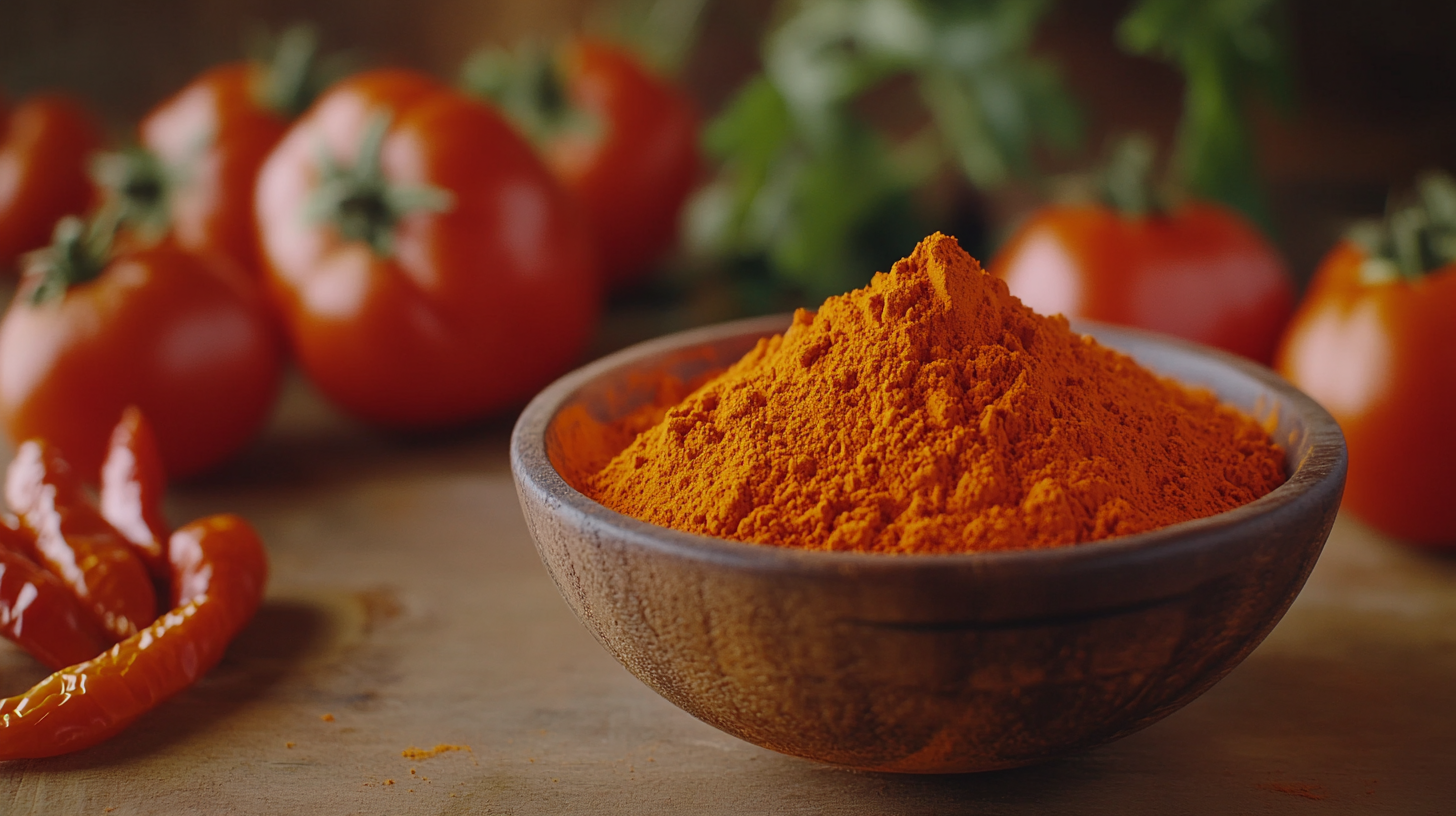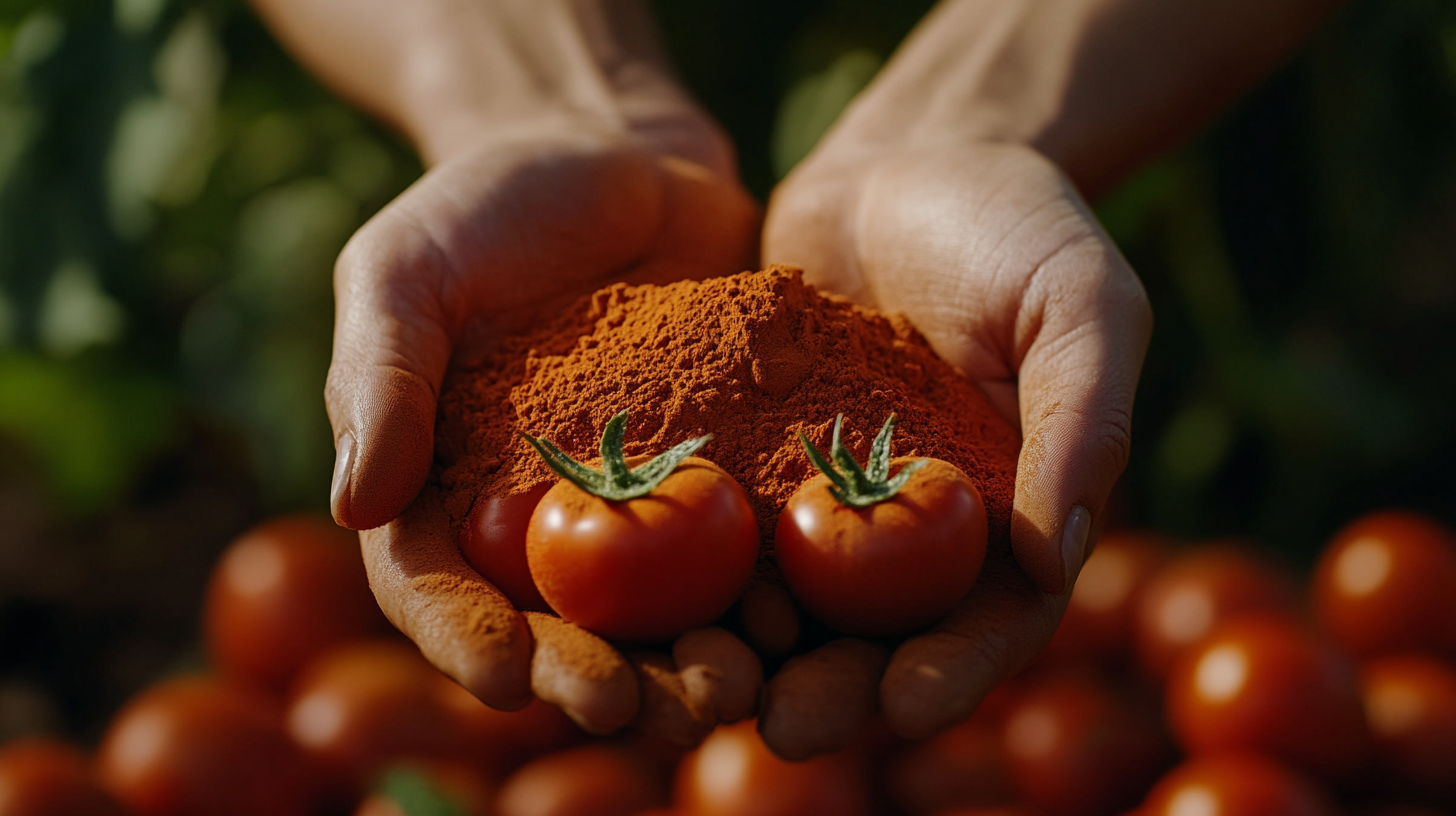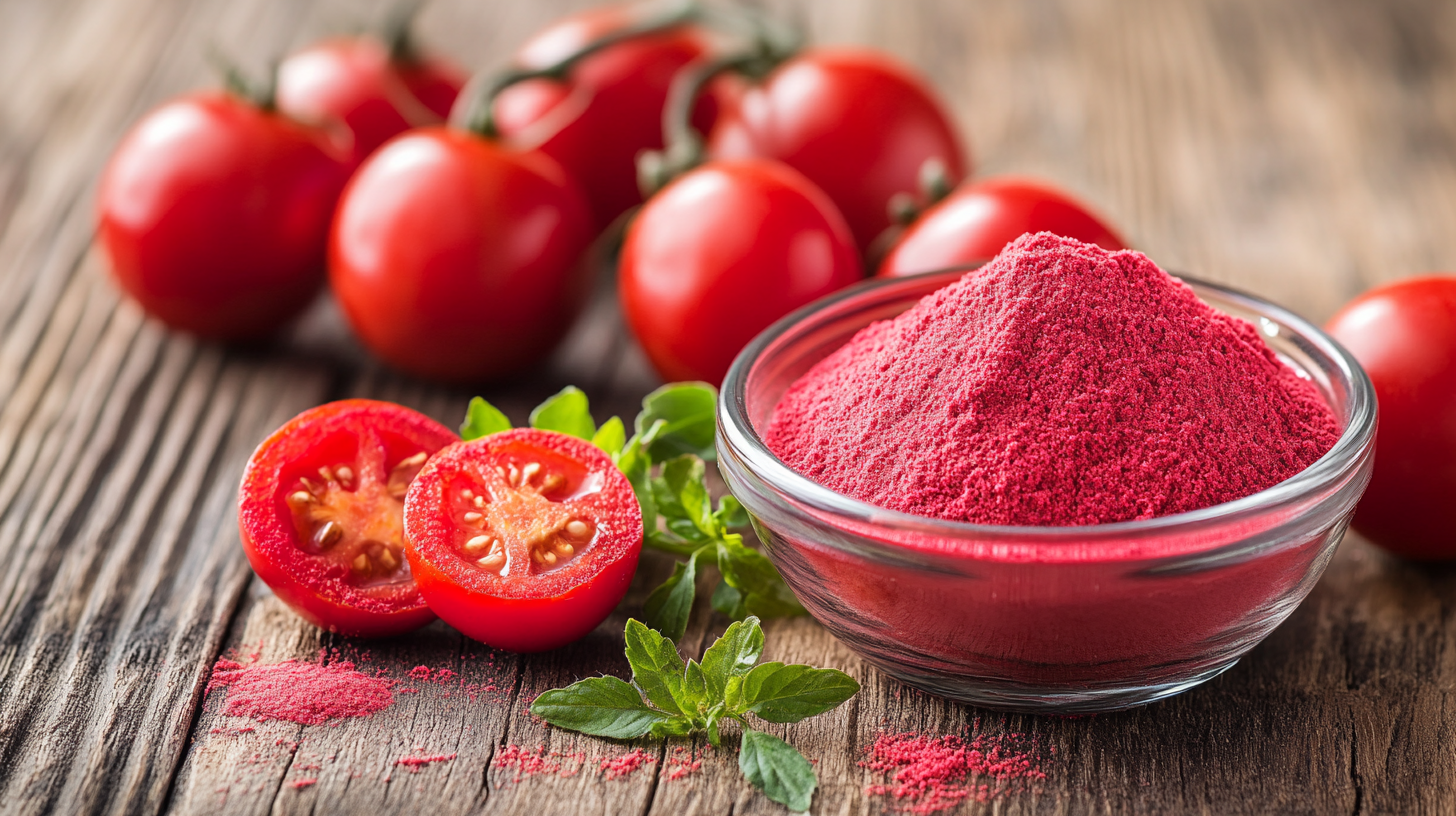Essential Tips for Selecting the Best Organic Tomato Powder for Your Needs
When it comes to enhancing your culinary creations, few ingredients offer the versatility and rich flavor of Organic Tomato Powder. This concentrated form of tomatoes not only provides a convenient way to incorporate the taste of ripe, sun-kissed tomatoes into your dishes but also delivers the health benefits associated with organic produce. With an array of options available in the market, knowing how to choose the best Organic Tomato Powder for your specific needs can make a significant difference in your cooking experience.
In this blog, we’ll explore essential tips that will guide you in selecting the highest quality Organic Tomato Powder. From understanding sourcing practices to examining packaging and flavor profiles, we will delve into the critical factors that ensure you’re making an informed choice. Whether you’re a chef looking to elevate your recipes or a home cook seeking healthier alternatives, our insights will help you navigate the myriad of options and find the perfect Organic Tomato Powder that aligns with your culinary ambitions.

Factors to Consider When Choosing Organic Tomato Powder
When selecting organic tomato powder, there are several key factors to consider to ensure you choose the best product for your culinary needs. First and foremost, it's essential to check the ingredient list. Look for organic tomato powder that contains only tomatoes, without any additives, preservatives, or artificial flavors. A pure product will offer the most authentic flavor and nutritional benefits. Another vital consideration is the source of the tomatoes. Researching the brand’s sourcing practices can provide insight into the quality of the tomatoes used. Ideally, the tomatoes should be grown in organic-certified farms, where they are cultivated without synthetic fertilizers or pesticides. This not only aligns with organic standards but also contributes to the overall taste and health benefits of the powder. Additionally, consider the packaging and storage instructions. Quality organic tomato powder should come in airtight, opaque containers to protect it from light and moisture, which can degrade its quality over time. Look for products with clear shelf-life information to ensure freshness. Lastly, check for third-party certifications that confirm the product’s organic status, adding an extra layer of trustworthiness to your purchase. By taking these factors into account, you can confidently choose an organic tomato powder that enhances your recipes and meets your health standards.

Understanding the Different Types of Organic Tomato Powder
When selecting the best organic tomato powder for your cooking and nutritional needs, it is crucial to understand the different types available on the market. Organic tomato powder varies not only in flavor and color but also in nutritional benefits, derived from the specific cultivars grown under organic conditions. Recent studies on traditional tomato cultivars, like the Malacara, have shown significant differences in their nutritional and aromatic profiles, influenced by factors such as cultivation practices and soil health. For instance, tomatoes grown organically offer enhanced flavors and nutritional content, making them superior choices for health-conscious consumers.
Furthermore, the cultivation environment significantly impacts the quality of tomato powder. Factors such as soil composition, organic fertilizer usage, and even the growth stage of the tomatoes play vital roles. Research has indicated that using organic waste-based fertilizers can improve tomato fruit size, even though it might affect growth rates. Understanding these dynamics can help consumers make informed decisions about which type of organic tomato powder to purchase, ensuring they choose a product that aligns with both their taste preferences and health goals.
Additionally, consumers should consider the potential variations in product quality and flavor that arise from different growing conditions and tomato varieties. With the increasing awareness of the benefits associated with organic products, opting for tomato powders derived from well-researched and sustainably grown tomatoes is essential for enhancing not just culinary experiences but also overall well-being.

Evaluating the Quality and Nutritional Content of Tomato Powder
When selecting organic tomato powder, evaluating its quality and nutritional content is crucial to ensure that it meets your dietary needs and enhances your culinary creations. Firstly, consider the source of the tomatoes used in the powder. High-quality organic tomato powder should be made from ripe, fresh tomatoes that have been carefully harvested and processed without the use of synthetic pesticides or fertilizers. This not only affects the flavor but also the overall nutrient profile of the product.
Another important aspect to examine is the processing method. Tomato powders that are dehydrated through low-temperature methods tend to retain more of their vitamins, minerals, and antioxidants compared to those subjected to high heat. Look for products that specify minimal processing and are rich in nutrients such as lycopene, vitamin C, and fiber, which are beneficial for health.
With the increased recognition of the nutritional benefits of tomatoes, highlighted in recent events like the Tomato Festival, it's evident that consumers are becoming more aware of the importance of quality ingredients. By selecting a reputable brand that emphasizes organic practices and transparent sourcing, you can ensure that you are incorporating a healthy and flavorful ingredient into your kitchen. Always check for certifications that guarantee organic standards, as this will help you make an informed choice.

How to Identify Certifications and Labels on Organic Tomato Products
When selecting organic tomato powder, understanding certifications and labels is crucial to ensure you're making a quality purchase. Look for reputable certifications such as USDA Organic, which indicates that the product meets strict organic farming standards. This certification ensures that the tomatoes used in the powder are grown without synthetic fertilizers, pesticides, or genetic modifications, offering a more natural and healthier option for consumers.
Additionally, pay attention to labels that specify non-GMO (genetically modified organism) status. This label assures that the tomatoes have not been genetically altered, adhering to natural cultivation practices. Some products may also feature third-party certifications, such as the Non-GMO Project Verified seal, which further signifies a commitment to quality and transparency. These labels can help you navigate the market and select the best organic tomato powder for your culinary needs.
Finally, consider products that display sourcing information. Knowing where the tomatoes are sourced can give you insights into their quality and freshness. Look for brands that proudly state their farming practices, as this not only reflects their commitment to organic standards but also connects you with sustainable agricultural movements. By understanding these certifications and labels, you can confidently choose organic tomato powder that aligns with your health and ethical values.
Tips for Incorporating Tomato Powder into Your Cooking and Recipes
Incorporating organic tomato powder into your cooking can transform the flavor profile of your dishes while also boosting their nutritional value. According to the USDA, tomatoes are rich in antioxidants, particularly lycopene, which is known for its health benefits, including reducing the risk of chronic diseases. By using organic tomato powder, you not only enhance the taste but also ensure that you’re adding a product free from harmful pesticides and chemicals.
When it comes to using tomato powder, versatility is key. This ingredient can be a superb addition to soups, sauces, and stews, providing a concentrated tomato flavor without the excess moisture. For example, adding a tablespoon of tomato powder to a pot of chili can deepen the flavors and enrich the dish. Furthermore, a study published in the Journal of Food Science indicated that dehydrating tomatoes preserves most of their nutrients, making tomato powder a smart choice for health-conscious cooks looking to add a punch of flavor.
Another innovative way to use organic tomato powder is in dry rubs and marinades for meats and vegetables. Combining it with herbs and spices can create a robust seasoning that elevates grilled or roasted dishes. Additionally, a popular trend among home cooks is to mix tomato powder into bread dough for a colorful and flavorful twist on classic recipes, tapping into the rise of artisanal bread-making that focuses on unique flavor combinations. This not only adds visual appeal but also integrates the health benefits of tomatoes into everyday meals.

